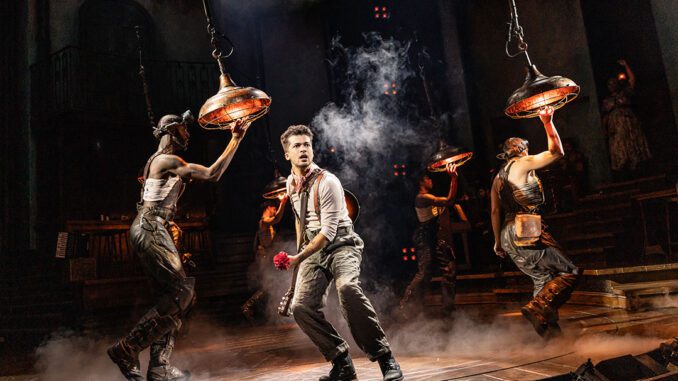
I first saw the snaking queues for Hadestown in late 2019 and I was intrigued. I couldn’t quite get tickets to watch Hadestown that year, or subsequent trips to New York. But the name stayed in my head because, well, I was a Greek mythology fan.
Seriously. I did a project on Greek mythology when I was in Primary 5. I read about how Amazons would cut off one breast to facilitate archery. I was so disappointed when the greatest monster of all, Typhon (he beat up Zeus), was reduced to this lumbering pudgy giant in Hercules: The Legendary Journeys. I was so nerdy I read up on the primordial deities of Greek mythology, ie, the generation before the Titans.
Okay so back to Hadestown. I finally got to watch it, this interpretation of Greek mythology where everyone isn’t Caucasian (the Greeks were Caucasian so I imagined all the gods and heroes to be that way) and it’s in an industrial setting with trains and railways and factory workers.
And truly, it’s a story that resonates no matter how you file the serial numbers off and change its appearance. It’s an interpretation of the original tale that’s laden with new meaning (environmental conservation) and new revelations. It’s such a joy to behold that I would totally watch it if it came to Singapore.
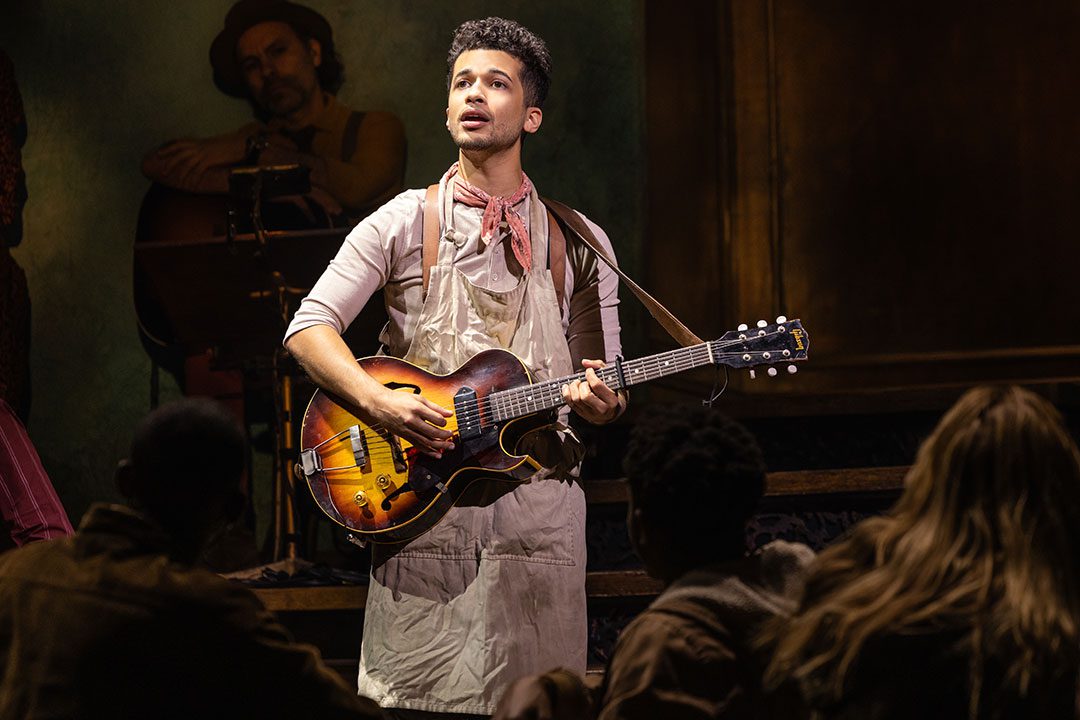
Synopsis
Hadestown is a theatrical musical which retells the tale of the Greek myth of Orpheus and Eurydice in an industrial setting. It sees a young girl, Eurydice, seeking work and food and shelter in the eponymous Hadestown, only to be trapped by its namesake leader, Hades. It’s up to her bard lover Orpheus to rescue her with his magical music, and to break the curse of winter on the land.
Director: Rachel Chavkin
Writer: Anaïs Mitchell
Music & Lyrics: Anaïs Mitchell
Choreographer: David Neumann
Cast
- Jordan Fisher (Orpheus)
- Maia Reficco (Eurydice)
- Yola (Persephone)
- Phillip Boykin (Hades)
- Stephanie Mills (Hermes)
- Belén Moyano, Jessie Shelton, Brit West, KC Dela Cruz, Shea Renne (Fates)
- Emily Aton, Malcolm Armwood, Timothy H. Lee, Eddie Noel Rodriguez, Grace Yoo (Workers Chorus)
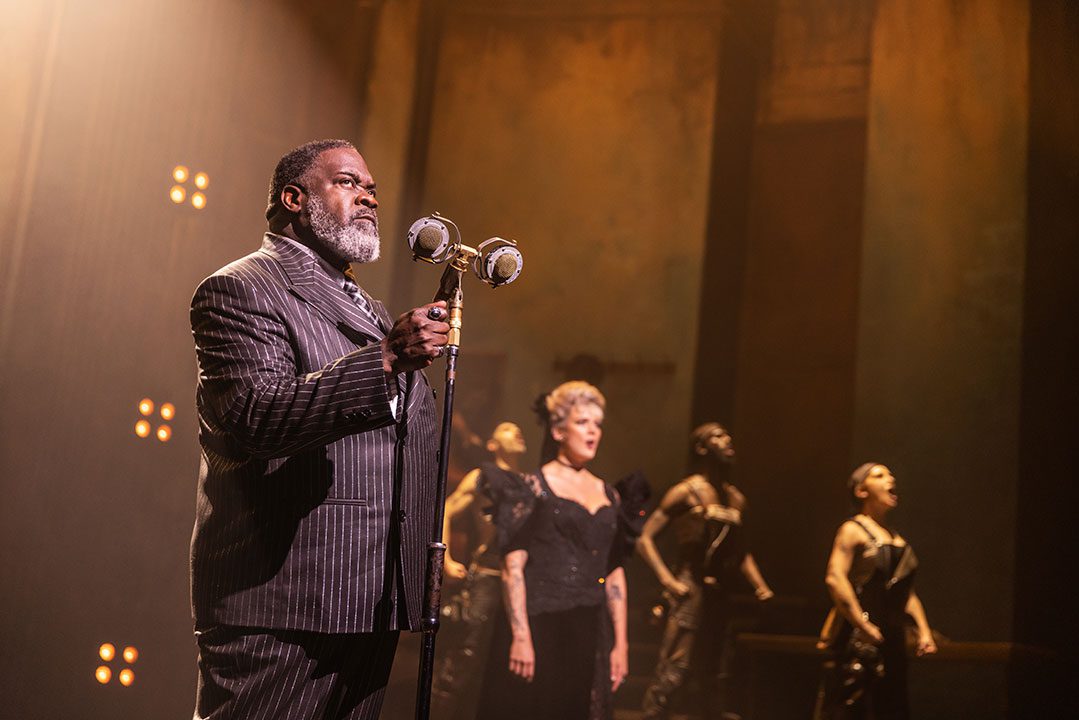
Phillip Boykin kills it as Hades
Hades (Phillip Boykin) absolutely steals the show as Hades. From his very first appearance (in the upper corner, having tea with Persephone [Yola]) where the focus is on Orpheus (Jordan Fisher) and Eurydice (Maia Reficco), Hades catches your eye. Phillip Boykin has such magnificent stage presence that your gaze is just drawn to him.
Coupled with his deep baritone voice, Hades cuts such a regal but menacing figure that you can’t help shiver at his presence. He radiates power, making him a credible threat for all of Hadestown. And what makes him human is that deep down, he’s like all of us – seeking love.
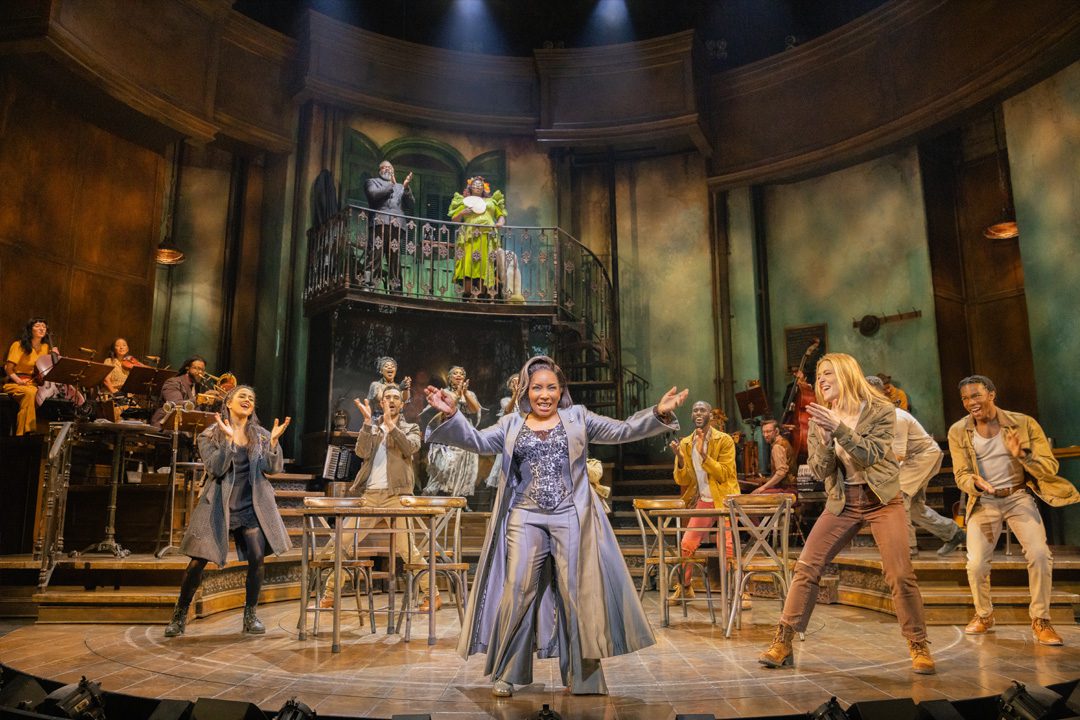
Mesmerising dance choreography
The musical numbers are simply hypnotic. The way the music and movement evoke the idea of industrial machines, of stone and steel, and the smell of smoke and pistons – it’s incredible given there aren’t any smoke machines on stage. The performances are staged in such a way as to immerse you in an industrial era, despite the fact that the sets aren’t actually that industrial. This is one musical where the power of song and dance (audio and tactile sensations) serve to create olfactory and visual images.
How the musical motif of the train evokes such powerful visuals
The train motif runs through many of the songs, which is a combination of folk music and jazz. Different train sounds appear as part of the musical arrangement for different songs – the steam being released, the chugging of the engine, the clanging of the wheels against the track – and it all combines to evoke the idea of a train, which is supposedly the only path to Hadestown. It’s a quite a stroke of genius to convey this train theme through sound, rather than visuals, and it stays on as a subtle reminder that the entire musical is set in an industrial setting.
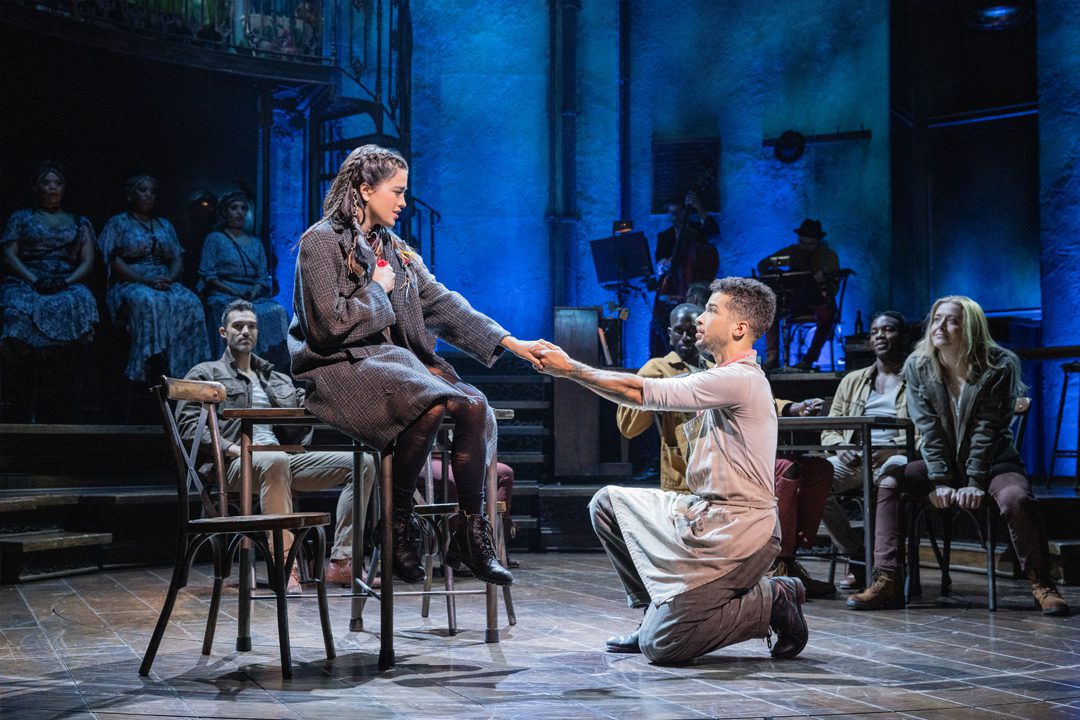
An amazing interpretation of the myth of Orpheus & Eurydice
The original myth casts Hades as the villain (which he still is in this musical). But Anaïs Mitchell’s interpretation of it humanises Hades, and draws parallels between his relationship with Persephone, to the other major couple in the story – Orpheus and Eurydice. It adds an environmental element to it, by having the land be cursed with winter because of Persephone’s disappearance. It shows how the decaying relationship between Hades and Persephone has made them both apathetic – one sidelined by a river of stone, another incapacitated by a river of wine. Coupled with the industrial setting, it’s such a refreshing reinterpretation of the myth.
Having a bard be the main character of a musical is pure genius
Orpheus is a bard, whether in the original myth or this musical.
So it’s such a stroke of genius that the musical is about a bard. You know, a guy who sings? As a musical, we get Orpheus belting out his lines in song and verse, and it also gives his music a magical quality to it. After all, Orpheus is working on a song that will return spring to the world, and who better to do that than a bard? Bards, being performers, are naturally inquisitive and slightly pushy – so of course, when the only way he can rescue Hadestown is by leading Eurydice out of it without turning back once, his imminent failure is all the more tragic and expected.
I loved it. I loved that of all the Greek myths to be depicted with stage and song, it’s the one about a bard.
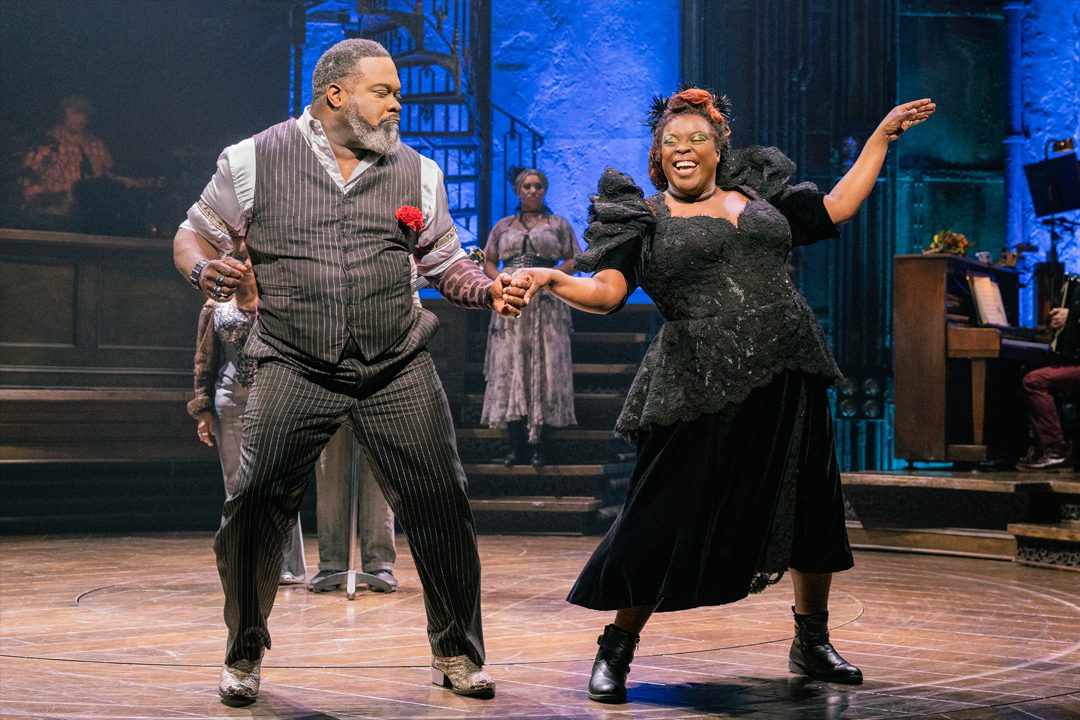
Should you watch Hadestown?
If it hasn’t been abundantly clear – yes, Hadestown is worth a watch. It’s fresh, it’s modern, and yet it’s about a classic. It’s a familiar story in unexpected new snappy clothes. It has a looming villain in the form of Hades whom you just love to hate. The musical numbers are earworms that will linger long in your mind when you’ve left the theatre. It’s about Greek mythology!
And so, Hadestown, thank you for reminding me of how much I love Greek mythlogy, and invigorating me with newfound love for this passion.
Score: 8.5/10
This review is for the 1 October, 2024 performance of Hadestown.
Leave a Reply